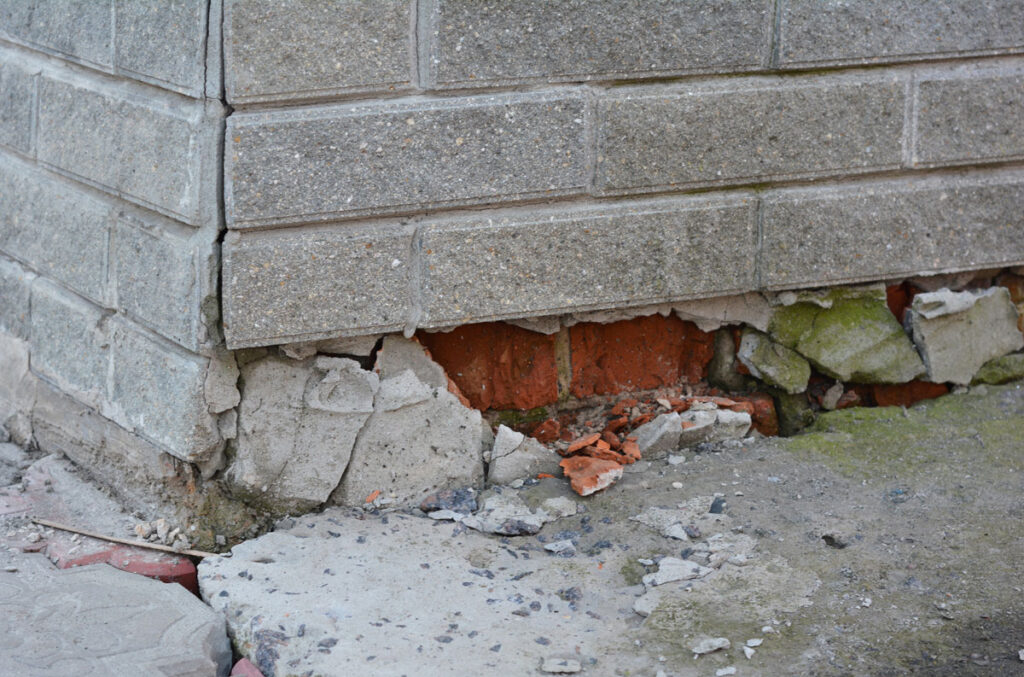Telltale Signs Your Home Needs a Structural Engineer: Cracks, Uneven Floors, and More
As a homeowner in South Jersey or Pennsylvania, noticing signs like cracks in your foundation, drywall cracks, uneven floors, water in your basement, or other unusual symptoms can raise concerns about your home’s safety. These are often indicators of underlying structural issues that require the expertise of a licensed structural engineer. At Penn Valley Engineering, based in Cinnaminson, NJ, we’re committed to helping homeowners understand these warning signs and why a structural engineer’s evaluation is critical. Here’s what you need to know about recognizing structural problems and when to seek professional help.

Recognizing Structural Warning Signs
Structural issues can compromise your home’s stability, safety, and value if left unaddressed. Below are common signs that suggest your home may need a residential structural engineer’s assessment:
- Cracks in Foundations: Small, hairline cracks in a concrete foundation may result from normal settling, but wider cracks (over 1/8 inch), horizontal cracks, or stair-step patterns in block foundations can indicate serious issues. In South Jersey, clay-heavy soils in areas like Burlington County or Camden County can cause foundation settlement or shifting due to moisture changes.
- Cracks in Drywall: Diagonal cracks around doorframes, windows, or ceilings, especially if they reappear after patching, may signal foundation movement, weak framing, or stress in load-bearing walls. Older homes in Cinnaminson or Pennsylvania are particularly susceptible due to age-related wear.
- Uneven or Sloping Floors: Floors that feel bouncy, sag, or slope noticeably may indicate weakened floor joists, foundation settlement, or inadequate support beams. This is a safety concern that requires expert evaluation to prevent further damage.
- Water in the Basement: Persistent water seepage or flooding can weaken a foundation over time, especially if cracks allow water to enter. Homes near the Delaware River or in coastal areas like the Jersey Shore face higher risks due to poor drainage or hydrostatic pressure. Read about foundation drainage.
- Other Concerning Signs: Symptoms like doors or windows that stick, gaps between walls and floors, sagging ceilings, or bowing walls often point to structural problems. These issues may stem from poor construction, soil movement, or environmental factors.
These signs don’t always mean immediate danger, but they warrant a professional assessment to determine their cause and severity. Ignoring them can lead to worsening damage, costly repairs, or safety risks.
Why a Licensed Structural Engineer?
A licensed structural engineer brings specialized expertise that general contractors, home inspectors, or handymen typically lack. Here’s how they differ and why their skills are essential:
- Technical Expertise: Structural engineers are trained in mechanics, materials science, and building codes, enabling them to analyze primary load-bearing systems (e.g., foundations, beams, columns). They use tools like laser levels and structural analysis software to assess a home’s stability and pinpoint the root cause of issues.
- Detailed Diagnosis: Unlike home inspectors who provide surface-level observations, structural engineers evaluate the structural integrity of critical components. For example, they can determine whether a foundation crack is cosmetic or a sign of serious settlement.
- Customized Solutions: Engineers provide detailed reports explaining the issue, its severity, and recommended repairs, such as foundation underpinning or beam reinforcement. They can also estimate repair costs and ensure solutions meet New Jersey and Pennsylvania building codes.
- Preventative Insights: Beyond fixing immediate issues, engineers offer guidance on preventing future problems, such as improving drainage to protect foundations in flood-prone areas like the Jersey Shore.
In South Jersey and Pennsylvania, where older homes, clay soils, and coastal conditions are common, a structural engineer’s local knowledge is invaluable for addressing region-specific challenges.

When to Call a Structural Engineer
You should consult a structural engineer if you notice any of the following:
- Foundation cracks wider than 1/8 inch, horizontal, or stair-step in pattern.
- Drywall cracks that persist after repair or appear in multiple areas.
- Uneven floors causing furniture to wobble or noticeable slopes.
- Water in the basement after rain or ongoing seepage.
- Unusual symptoms like sticking doors, sagging roofs, or bowing walls.
Early evaluation can prevent minor issues from becoming major expenses. For example, addressing foundation settlement early might cost a few thousand dollars, while neglecting it could lead to repairs exceeding $20,000.
Regional Considerations in South Jersey and Pennsylvania
Homes in Cinnaminson, Burlington County, and Camden County often face structural challenges due to expansive clay soils that shrink and swell with moisture, causing foundation movement. Coastal Jersey Shore homes may experience corrosion from saltwater exposure, weakening structural components. In Pennsylvania, older homes in urban areas or near rivers such as the Delaware are prone to water-related foundation issues. A structural engineer familiar with these conditions can provide tailored assessments and solutions.
What to Expect from a Structural Engineer’s Visit
During an inspection, a licensed structural engineer will:
- Examine visible signs such as cracks or uneven floors.
- Assess load-bearing systems using specialized tools.
- Investigate underlying causes, such as soil conditions or water damage.
- Provide a report detailing findings, repair recommendations, and preventative measures.
This process ensures you have a clear understanding of your home’s condition and the steps needed to maintain its safety.
Take Action to Protect Your Home
If you notice cracks in your foundation, drywall cracks, uneven floors, water in your basement, or other concerning signs, a licensed structural engineer can provide the expertise needed to protect your home. At Penn Valley Engineering in Cinnaminson, NJ, we’re dedicated to helping homeowners in South Jersey and Pennsylvania address structural concerns with confidence.
For a professional evaluation, contact Penn Valley Engineering at (856) 872-3537 or complete our contact form. Our team is here to ensure your home remains safe and secure.

 Penn Valley Engineering is a structural engineering consulting firm dedicated to Total Client Satisfaction.
Penn Valley Engineering is a structural engineering consulting firm dedicated to Total Client Satisfaction.